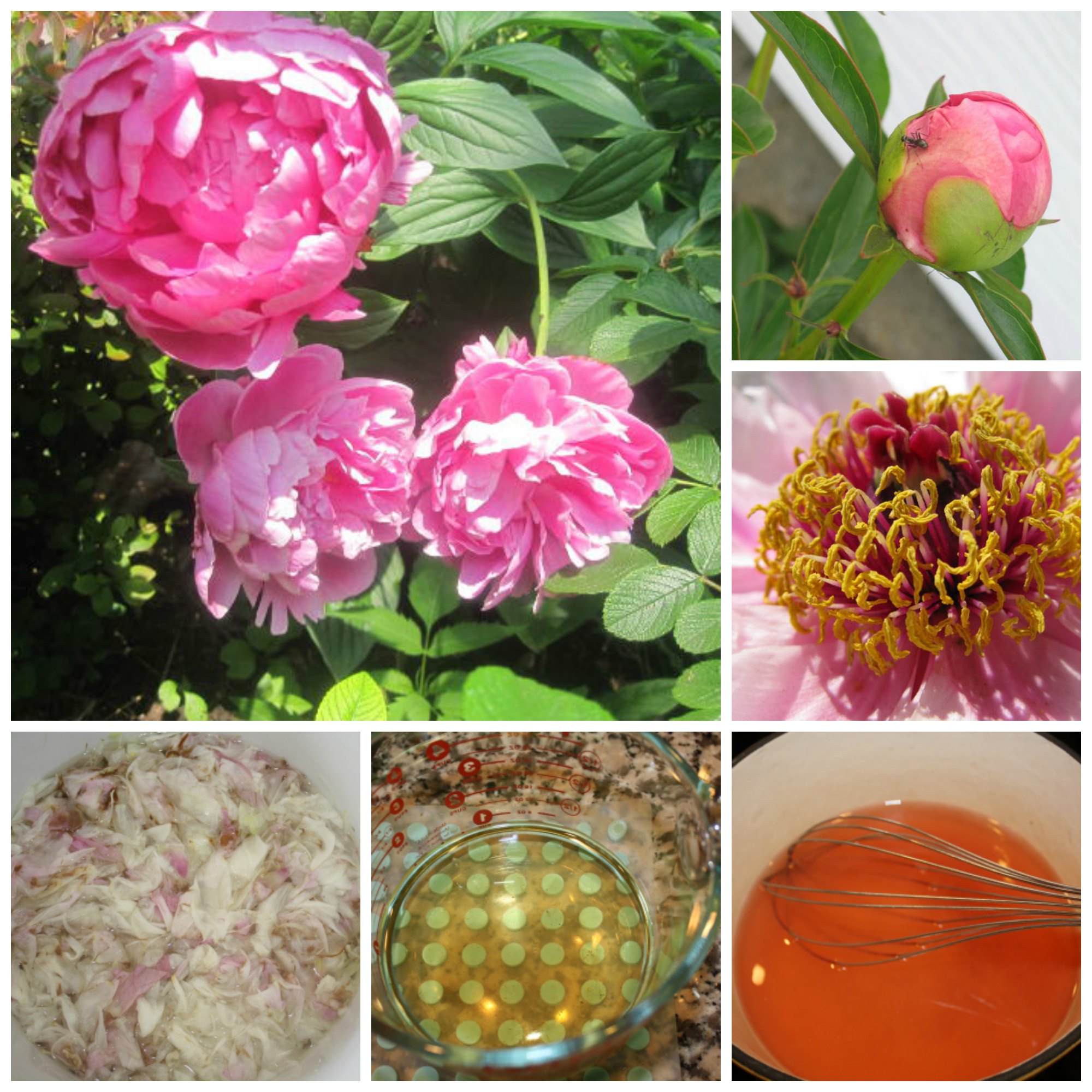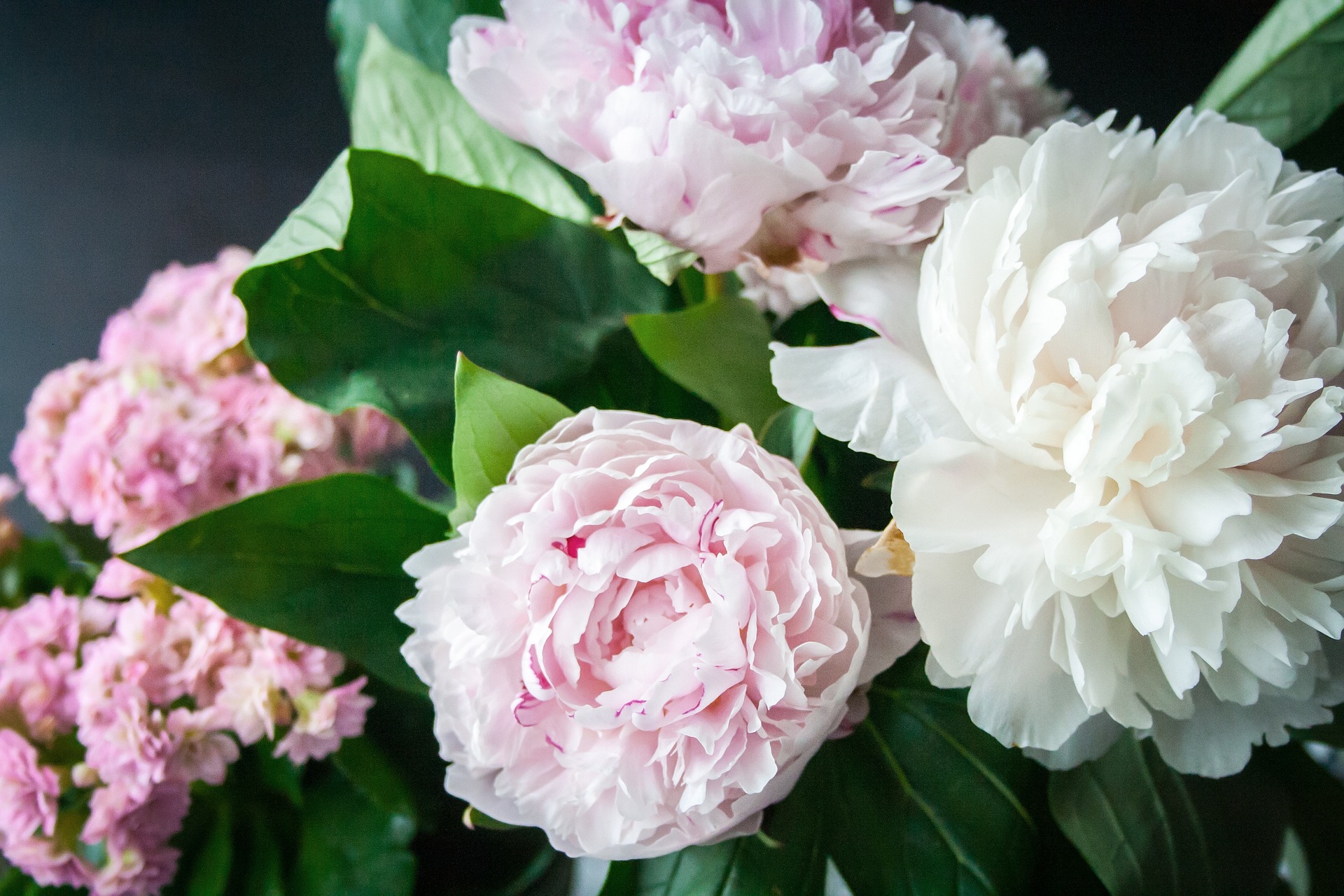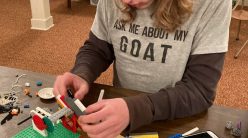
When the peonies bloom in early summer, it’s a great opportunity to do some summer science with the kids.
Here are some fantastic ways to do nature studies and learn all sorts of science concepts with these beautiful flowers.
Keep them from blooming in the refrigerator for over a month! There are lots of sites online that say you can take peony buds and keep them in the fridge for a month or more. This member of a gardening forum successfully did the experiment and followed up with lots of pictures and tips on how to do it yourself.
Another reader weighed in and said:
Wholesale florists keep peonies in the cold out of water to delay opening. But once you put them in water, they open immediately, as you discovered. Roses are often treated the same way. In fact, roses sold at Valentines have often been cut in October and November and kept in cold storage.
This would make for a great extension activity, to see if other flowers could be kept from blooming long-term in this way.
Make color-changing peony jelly! Imperfect Urban Farm has the instructions on how to use peony petals to make jelly. There are lots of pictures of the process and she warns that the color of the juice will be a “sickly green” until lemon juice is added, at which point it will turn a lovely pinkish-orange. Ask the kids if they can figure out why it changes color (peonies apparently work as pH indicators and lemons are acidic).
Propagate new peonies: How patient can you kids be? If they’d like to try their hands at growing new peonies, they can try to harvest the seeds and grow all new plants. Jim W. gives these instructions on the Heartland Peony Society:
Those ‘things in the middle of the flower’ are carpels-really fruits. Wait until these pods in the middle of the flower are ripe (maybe August). They will split open and show black round seeds the size of a small pea. As soon as the pods split, plant the seeds in the ground and water well. Do not hold on to the seeds or wait any longer than needed. Expect germination in spring and bloom in 3 to 5 years depending on care. Seeds may take an extra year to germinate, but have patience.
Seedlings may not look like the parent plant as most peonies are hybrids.
You can also study symbiosis while learning about the relationship between ants and peonies. You can get a sense of the common thoughts and myths about the matter on this gardening forum and some great information on what ants really do for peonies here.
Learn more about peonies at How Stuff Works, such as this tidbit:
The peony is named for Paeon, a Greek god of healing apparently because the plant contains an alkaloid substance that hastens childbirth.
and Info Please, which gives this tidbit:
The peony was formerly regarded as both ornamental and medicinal—the roots were used to prevent convulsions.
Have fun!

~~~
Want more ways to combine nature fun with science, math and more? Check out my book, A Magical Homeschool: Nature Studies (52 Wonderful Ways to Use Nature Studies in Every Season to Teach Science, Math, Art and More), available for the Kindle and in paperback, with nature journal pages in the print version for seasonal nature sketches, nature project notes and observations, bird logs, animal logs and garden/foraging records. These fun projects can be done virtually anywhere and can involve all ages of children.
 A Magical Homeschool: Nature Studies features 52 wonderful nature study activities, broken up into four seasons, for families to do together. The fun and simple projects teach subjects such as science, math, language arts and geography in ways that get kids excited about nature and learning.
A Magical Homeschool: Nature Studies features 52 wonderful nature study activities, broken up into four seasons, for families to do together. The fun and simple projects teach subjects such as science, math, language arts and geography in ways that get kids excited about nature and learning.
- Use natural materials to dye homemade play dough
- Track the length of daylight in the winter
- Experiment on weeds to see what makes them grow or die
- Test the pH level of liquids with color-changing purple cabbage water
- Tell the temperature by counting cricket chirps
- and much more!
***
(Note that this page contains an affiliate link, and purchases made through this link earn us a small commission at no extra cost to you.)




